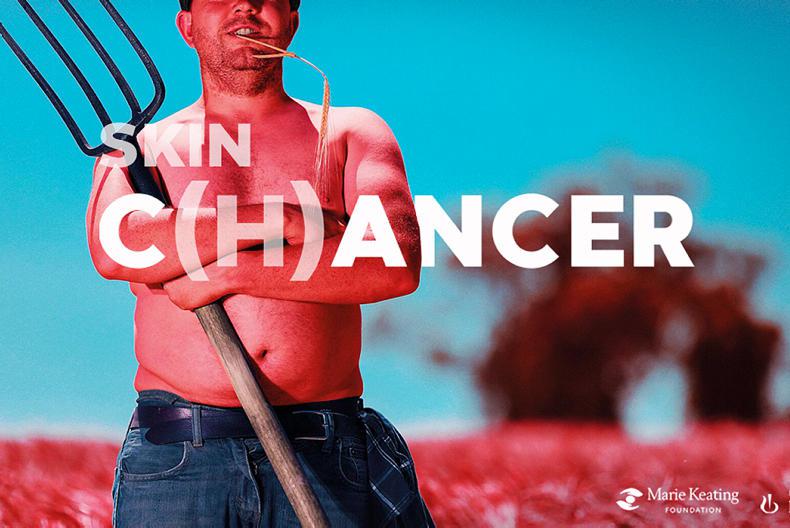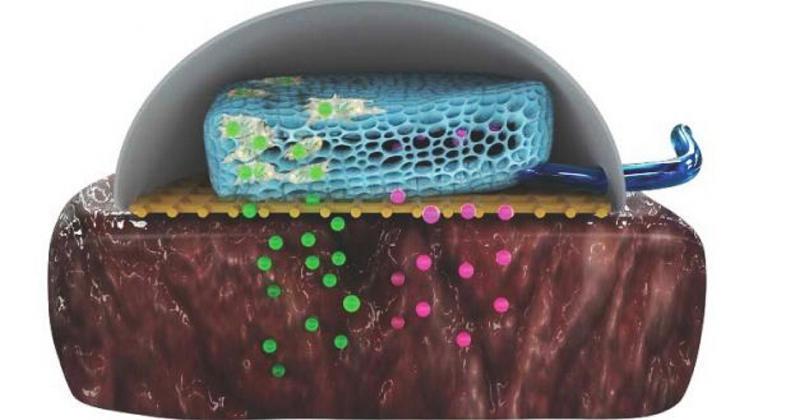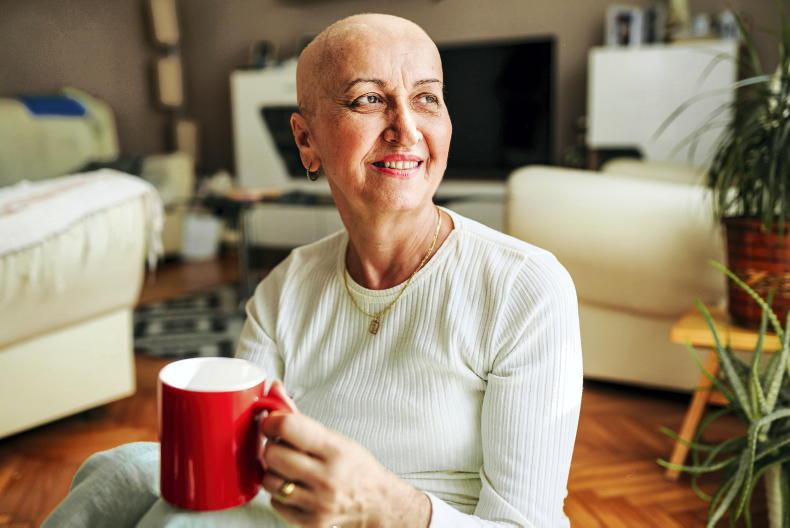Fair deal update
The Government has approved a proposal to change how farms and businesses are treated under the Nursing Home Support Scheme (the Fair Deal Scheme).
The three-year cap that applies to principal private dwellings will soon be applied to farms and businesses also where a family successor continues to operate the farm or business for a period of six years. Legislation is now awaited to finalise this decision.
The plan is that this change will limit the financial burden on the farm to the cost of three years’ care. While those three years would involve total or partial payment for care depending on farm assets and income, and whether or not land had been transferred five years previously, after that – in the fourth year – the cost of the person being in a nursing home, if they are over 66, would be covered by the person’s pension from year four.
“This move will remove a great deal of stress and worry from the affected families and allow them to plan for the future. It will allow them to continue to run the family business without the fear of losing it,” said Minister of State, Jim Daly.
Free health checks at Glanbia co-ops
Don’t forget that if you live in Laois, Kildare, Kilkenny, Offaly and Cavan, a Full Heart Health Check may be available to those of you who are Glanbia members. Seven-hundred free check-ups are being carried out over 32 days at 17 Glanbia locations. Some have yet to happen so check with your local outlet. Cholesterol, blood pressure, blood glucose and weight measurements will be taken, with results and advice given on the same day. Follow-up support will also be offered.
Last year we featured the story of Wexford man Colm Doran, who was referred for an angiogram after his free health check revealed that he had very high blood pressure. He soon had stents inserted and is glad the problem was picked up by the free heart health check-up.

Farmers urged not to be skin chancers.
Farmers urged not to be skin c(h)ancers
Kilkenny hurling legend Eddie Brennan is backing the Marie Keating Foundation campaign asking Irish male farmers not to be ‘skin c(h)ancers’. With the incidence of melanoma skin cancer more than tripling in two decades, men who spend time outdoors are at risk.
“Irish men need a wake-up call about skin cancer. Approximately 530 cases of melanoma are diagnosed in Irish men each year, resulting in 88 deaths annually,” says Liz Yeates.
“Our message is simple: Don’t take the chance, protect your skin.”
Be SunSmart and check your moles for changes. Any change in colour, size or shape, bleeding, crusting or itching should warrant a GP appointment. If skin cancer is caught early, treatment can be very effective.
1,350 junk food adverts during the World Cup
Analysis by the Irish Heart Foundation has revealed that children watching the World Cup knockout stages on TV in Ireland were exposed to 1,350 junk food adverts.
“Children are influenced by the strong emotions of match play and their sporting heroes,” says lead researcher Mimi Tatlow-Golden of Open University.
“This kind of marketing during sporting events creates powerful positive and healthy associations with junk food brands – the opposite of reality.
“This research is crucial in demonstrating the extent of junk food brand advertising in association with high-performance sport, she says.
“Strong concerted international action is needed if we are to protect children’s rights to grow in healthy environments. Football is a global sport but sadly obesity is now a global health issue.”

Therapi.
New device to help hearts after attack
An implantable device called Therapi, which is place directly on the heart, can act as a reservoir for drugs and will make it easier to target treatment in patients who have had heart attacks.
This has been developed by researchers at NUI Galway, Harvard University and Massachusetts Institute of Technology (MIT). Clinical trials will soon begin. The device will help because the medication will stay on the intended site of the beating heart. Currently, this doesn’t always happen.
After a heart attack, complications frequently occur, including scarring of cardiac tissue and changes in size, shape, structure and function of the heart, which may ultimately lead to heart failure. With Therapi, a pouch is topped up with drugs and the device is fitted to the outside surface of the heart.
Young people who smoke are much more likely to experience poorer mental health and engage in antisocial behaviour – Irish Cancer SocietyThe Mater Private hospital has launched a pelvic health clinic, available to patients with or without private medical insurance, that will treat conditions like bowel and urinary incontinenceBoots Ireland is now offering a mole scanning service. It costs €39 for one and €19 for additional moles to a maximum of four.Buying purple bale wrap from Associated Trading Co-operatives will help support Crumlin Children’s HospitalThe Irish Cancer Society is calling on the Government to offer HPV vaccination to boys as well as girls. Crumlin Children’s Hospital is asking local residents to offer parking spaces to parents of sick children to alleviate parking shortage.Spina Bifida Hydrocephalus Ireland has launched a film to highlight the challenges people with the condition face. See www.sbhi.ie Women – heart attack risk factors and symptoms
Women in Ireland are six times more likely to die of heart disease than breast cancer. If you have these symptoms, see your doctor:
Neck, jaw, shoulder and upper back or abdominal discomfort.Shortness of breath.Pain in one or both arms.Nausea or vomiting.Unexplained perspiration.Light-headedness or dizziness.Unusual fatigue.Risk factors for women are diabetes, mental stress and depression, smoking, inactivity, menopause and pregnancy complications like high blood pressure.
Source: Mater Private
Fair deal update
The Government has approved a proposal to change how farms and businesses are treated under the Nursing Home Support Scheme (the Fair Deal Scheme).
The three-year cap that applies to principal private dwellings will soon be applied to farms and businesses also where a family successor continues to operate the farm or business for a period of six years. Legislation is now awaited to finalise this decision.
The plan is that this change will limit the financial burden on the farm to the cost of three years’ care. While those three years would involve total or partial payment for care depending on farm assets and income, and whether or not land had been transferred five years previously, after that – in the fourth year – the cost of the person being in a nursing home, if they are over 66, would be covered by the person’s pension from year four.
“This move will remove a great deal of stress and worry from the affected families and allow them to plan for the future. It will allow them to continue to run the family business without the fear of losing it,” said Minister of State, Jim Daly.
Free health checks at Glanbia co-ops
Don’t forget that if you live in Laois, Kildare, Kilkenny, Offaly and Cavan, a Full Heart Health Check may be available to those of you who are Glanbia members. Seven-hundred free check-ups are being carried out over 32 days at 17 Glanbia locations. Some have yet to happen so check with your local outlet. Cholesterol, blood pressure, blood glucose and weight measurements will be taken, with results and advice given on the same day. Follow-up support will also be offered.
Last year we featured the story of Wexford man Colm Doran, who was referred for an angiogram after his free health check revealed that he had very high blood pressure. He soon had stents inserted and is glad the problem was picked up by the free heart health check-up.

Farmers urged not to be skin chancers.
Farmers urged not to be skin c(h)ancers
Kilkenny hurling legend Eddie Brennan is backing the Marie Keating Foundation campaign asking Irish male farmers not to be ‘skin c(h)ancers’. With the incidence of melanoma skin cancer more than tripling in two decades, men who spend time outdoors are at risk.
“Irish men need a wake-up call about skin cancer. Approximately 530 cases of melanoma are diagnosed in Irish men each year, resulting in 88 deaths annually,” says Liz Yeates.
“Our message is simple: Don’t take the chance, protect your skin.”
Be SunSmart and check your moles for changes. Any change in colour, size or shape, bleeding, crusting or itching should warrant a GP appointment. If skin cancer is caught early, treatment can be very effective.
1,350 junk food adverts during the World Cup
Analysis by the Irish Heart Foundation has revealed that children watching the World Cup knockout stages on TV in Ireland were exposed to 1,350 junk food adverts.
“Children are influenced by the strong emotions of match play and their sporting heroes,” says lead researcher Mimi Tatlow-Golden of Open University.
“This kind of marketing during sporting events creates powerful positive and healthy associations with junk food brands – the opposite of reality.
“This research is crucial in demonstrating the extent of junk food brand advertising in association with high-performance sport, she says.
“Strong concerted international action is needed if we are to protect children’s rights to grow in healthy environments. Football is a global sport but sadly obesity is now a global health issue.”

Therapi.
New device to help hearts after attack
An implantable device called Therapi, which is place directly on the heart, can act as a reservoir for drugs and will make it easier to target treatment in patients who have had heart attacks.
This has been developed by researchers at NUI Galway, Harvard University and Massachusetts Institute of Technology (MIT). Clinical trials will soon begin. The device will help because the medication will stay on the intended site of the beating heart. Currently, this doesn’t always happen.
After a heart attack, complications frequently occur, including scarring of cardiac tissue and changes in size, shape, structure and function of the heart, which may ultimately lead to heart failure. With Therapi, a pouch is topped up with drugs and the device is fitted to the outside surface of the heart.
Young people who smoke are much more likely to experience poorer mental health and engage in antisocial behaviour – Irish Cancer SocietyThe Mater Private hospital has launched a pelvic health clinic, available to patients with or without private medical insurance, that will treat conditions like bowel and urinary incontinenceBoots Ireland is now offering a mole scanning service. It costs €39 for one and €19 for additional moles to a maximum of four.Buying purple bale wrap from Associated Trading Co-operatives will help support Crumlin Children’s HospitalThe Irish Cancer Society is calling on the Government to offer HPV vaccination to boys as well as girls. Crumlin Children’s Hospital is asking local residents to offer parking spaces to parents of sick children to alleviate parking shortage.Spina Bifida Hydrocephalus Ireland has launched a film to highlight the challenges people with the condition face. See www.sbhi.ie Women – heart attack risk factors and symptoms
Women in Ireland are six times more likely to die of heart disease than breast cancer. If you have these symptoms, see your doctor:
Neck, jaw, shoulder and upper back or abdominal discomfort.Shortness of breath.Pain in one or both arms.Nausea or vomiting.Unexplained perspiration.Light-headedness or dizziness.Unusual fatigue.Risk factors for women are diabetes, mental stress and depression, smoking, inactivity, menopause and pregnancy complications like high blood pressure.
Source: Mater Private













SHARING OPTIONS